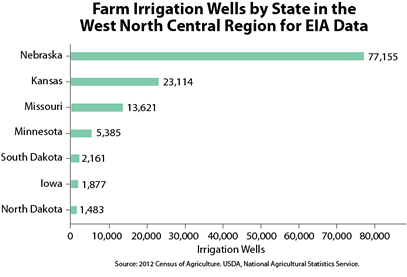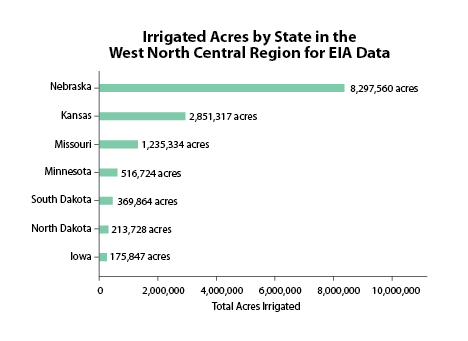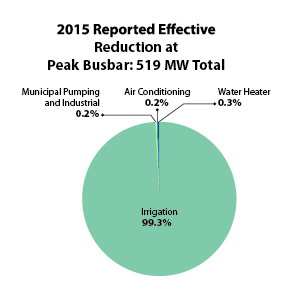 |
|---|
 |

|
Save Money in Irrigation Costs...
How Irrigators Help Reduce Energy at Peak Times
Did you know when conditions are right, Nebraska irrigators — working with their local utilities — can reduce energy usage approximately 600 megawatts? That's almost half the total generation output from Gerald Gentleman Station, the states largest power generating facility, or the equivalent energy consumption of more than 12,000 pivots.
A Unique Customer Base
In addition to their beloved Cornhusker football team, Nebraskans take great pride in several other special characteristics of this
state. Chimney Rock, the Platte River and the patchwork quilt of amber, green and gold cropland seen from the sky to name a few. This farm ground represents the most irrigated land in the United States, and gives Nebraska Public Power District and its wholesale utility customers a unique customer base when compared to other utilities nationwide.
The Difference
Starting in the late 1970s, NPPD began working with its wholesale customers who have large agricultural loads to offer farmers a way to manage electricity during peak use times and share in the cost savings. Under the "Demand Waiver Program", irrigators
can sign up for various control plan options. The more flexible the farmer is in allowing a utility to reduce its electric load "on demand", (or when the need for electricity from all customers is high) the cheaper the load control rate. This program works because of constant communication between all involved parties. NPPD's wholesale utility customers are the "subject matter experts" for their electric load and are very good at relaying information concerning loads and conditions they are seeing. They work with NPPD to establish how much load changed due to rainfall, when irrigation will start, how much load they are planning to manage, etc. In turn, NPPD keeps them informed about electrical demand on the system.
The Benefits
This collaborative approach benefits all customers and helps get the greatest bang
for the buck from the electric system. NPPD
sends signals to customer groups identifying
certain timeframes expected for summer
demand among particular groups. This
allows the wholesale utilities to determine
what load levels they need to be at. The
utilities then send signals to their own
customers, such as irrigators, regarding the
need to reduce load who participate in their
load control program. Control options range
from "no control" to a few days of control up
to a seven-day option. Rates decrease as the
amount of control increases.
Shedding load at peak times helps utilities
manage power supply costs and postpones
the need to build new power plants, resulting
in more competitive electric rates overall.